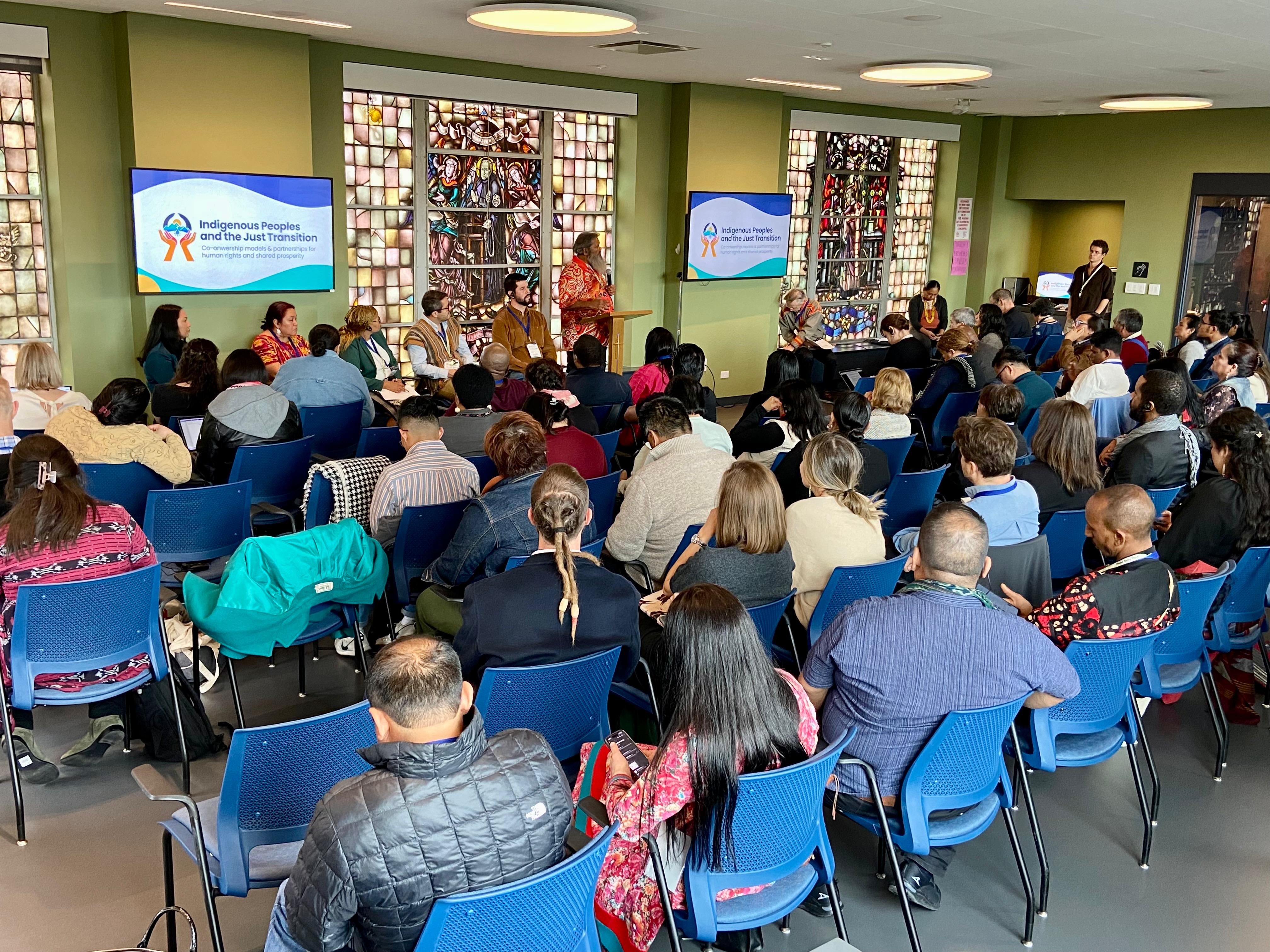MEDIA ADVISORY
For immediate release
Thursday 18 April 2024
Indigenous Peoples unite in call for full respect for their rights, participation & shared prosperity for just clean energy transition
In a statement published today, 87 Indigenous Peoples’ representatives from 35 countries in the 7 socio-cultural regions of the world set out demands for respect for Indigenous Peoples’ rights, social equity, cultural integrity, inclusivity, full and effective participation and shared prosperity in the shift to renewable energy.
Representatives met ahead of this week’s UN Permanent Forum on Indigenous Issues (UNPFII) to address the pressing issues surrounding a just energy transition in a first-of-its-kind conference organised from 12 – 14 April 2024 by Business & Human Rights Resource Centre, Indigenous Peoples Rights International (IPRI) and Right Energy Partnership with Indigenous Peoples (REP).
The statement highlights the central importance of a global shift towards renewable energy – but calls out the catastrophic failure to respect the rights of Indigenous Peoples thus far and the damage this is causing to people and the planet. The statement makes clear that putting indigenous peoples front and centre in the whole processes and supporting their empowerment to spearhead renewable energy initiatives is a key ingredient for delivering a fair, fast and effective energy transition for them as rightsholders and all other stakeholders, as well as being essential for self-determined sustainable development.
The participants underlined that at least half of the transition minerals and significant renewable energy potential needed for the energy transition was located on indigenous peoples' lands, and that there can be no just transition without an approach that respects the rights of these indigenous peoples who have held the territories for millennia. In light of that, the statement concludes by setting out specific demands for states, companies and energy regulators to deliver a just transition based on respect for Indigenous Peoples’ rights. These include:
- For states: Fast-track divestment from fossil fuels; provide direct, adequate and flexible funding, including access to climate financing mechanisms, and technical and legal capacity-building support to empower Indigenous Peoples to shape their own present and future in renewable energy development.
- For companies and investors: Fairly negotiate and implement equitable benefit-sharing mechanisms, including co-ownership and co-equity models, that respect Indigenous Peoples’ rights and contributions and ensure respect to their FPIC.
- For energy utilities and regulators: Establish effective mechanisms for full and effective participation of Indigenous Peoples in planning, implementation, revenue generation and monitoring of energy development projects; ensure access to affordable renewable energy for Indigenous Peoples’ communities.
// ENDS
Notes to editors:
- The Business & Human Rights Resource Centre (BHRRC) is an international NGO that tracks the human rights impacts of companies across the globe.
- Indigenous Peoples Rights International (IPRI) is an Indigenous-led organization that works to protect Indigenous Peoples’ Rights, and unite and amplify the call for justice to victims of criminalization and impunity.
- The Right Energy Partnership with Indigenous Peoples (REP) is an indigenous-led, multi-stakeholder partnership with the goal of increasing renewable energy systems that respect human rights and leveraging the leadership of indigenous communities to develop solutions.
- BHRRC recorded at least 49 allegations of abuse of Indigenous Peoples’ rights linked to extraction of six minerals needed for renewable technologies from 2010-2022.
- Only two out of 28 companies assessed in the 2023 Renewable Energy Benchmark have clear policy commitments to respect Indigenous Peoples’ rights, including their right to Free, Prior and Informed Consent.
- Between January 2015 and August 2022, IPRI and BHRRC identified at least 883 attacks on Indigenous human rights defenders working to protect their rights, lands, territories and resources from harmful business - these included killings, threats, arbitrary detention, and strategic lawsuits against public participation (SLAPPs). Although Indigenous peoples comprise approximately one in 17 (6%) of the world’s population, nearly one in five (20%) attacks against human rights defenders globally since 2015 have been against Indigenous human rights defenders.
- IPRI and BHRRC’s “Shared prosperity models & Indigenous leadership for a just transition” documents successful cases of Indigenous ownership and co-ownership models from around the world.
For statement requests, interviews or further information, please contact:
BHRRC Contact Details:
Ana Zbona, Co-Head, Civic Freedoms and Human Rights Defenders programme:
Michael Clements, Director of International Programmes,
IPRI Contact Details:
Adazahira Chavez, Global Communications Coordinator,
REP Contact Details:
Richard Gaddit,



